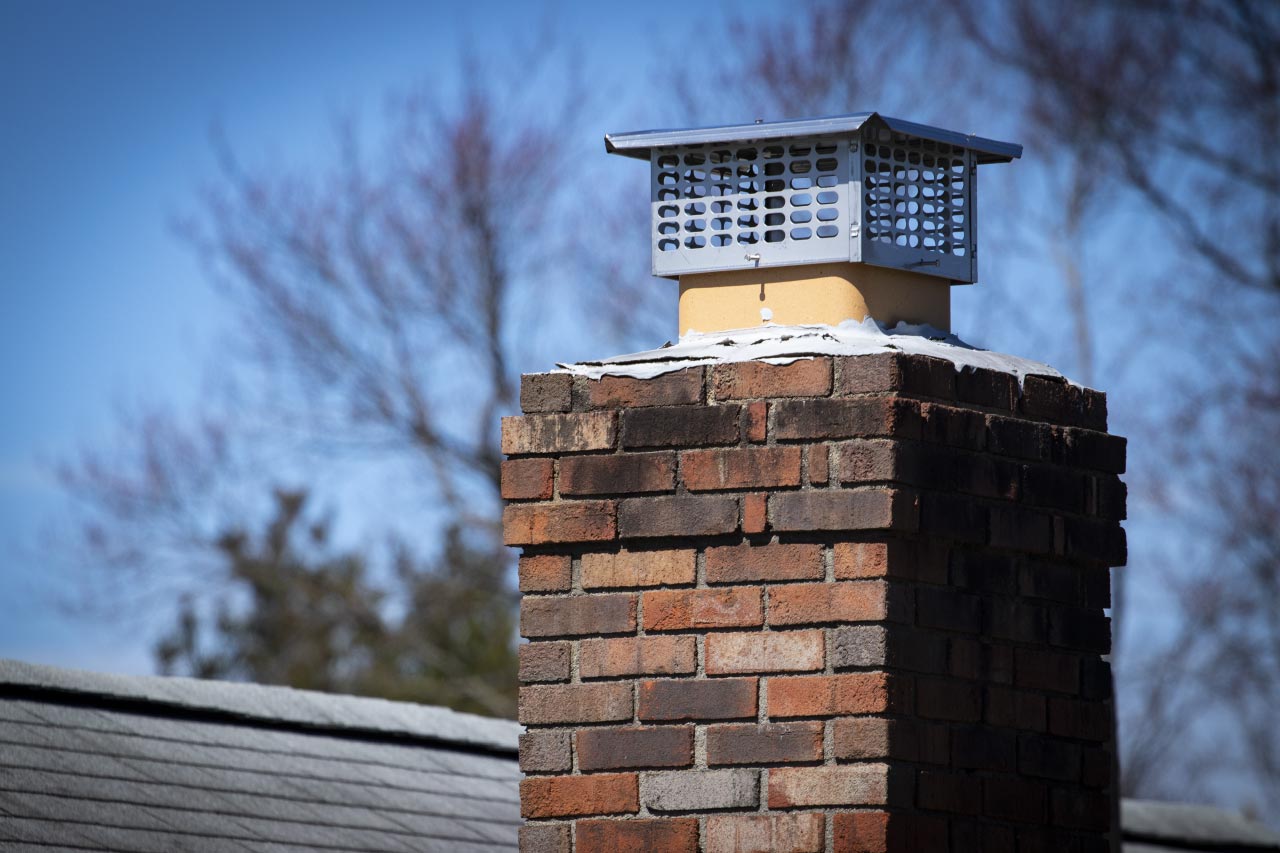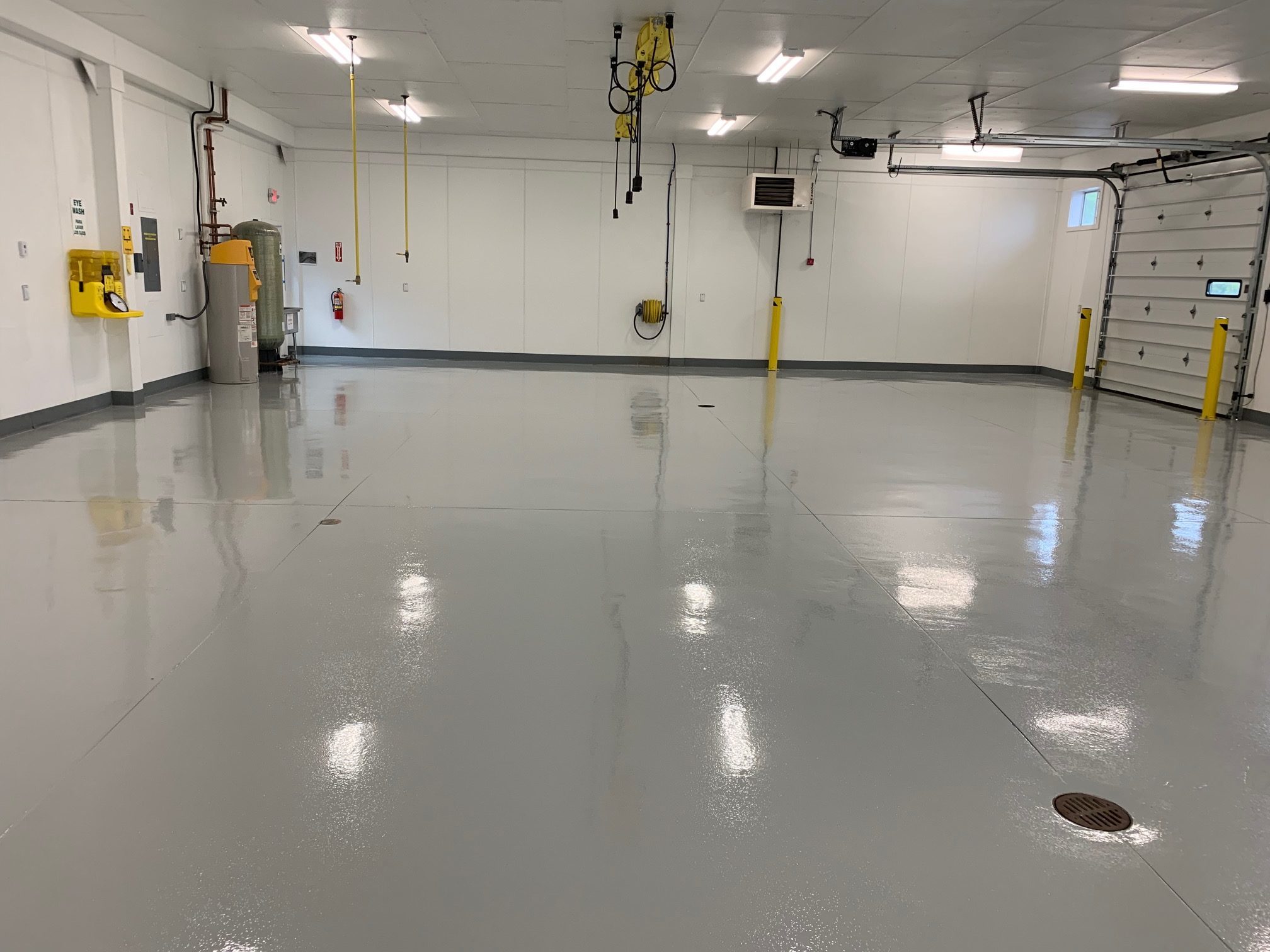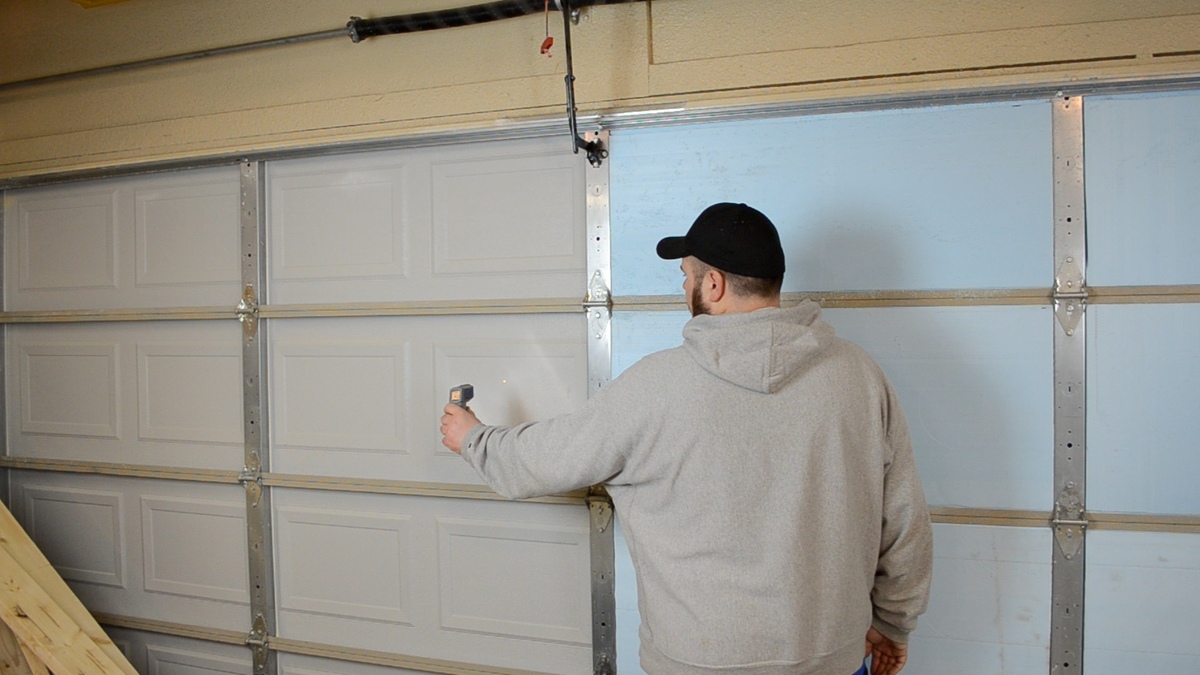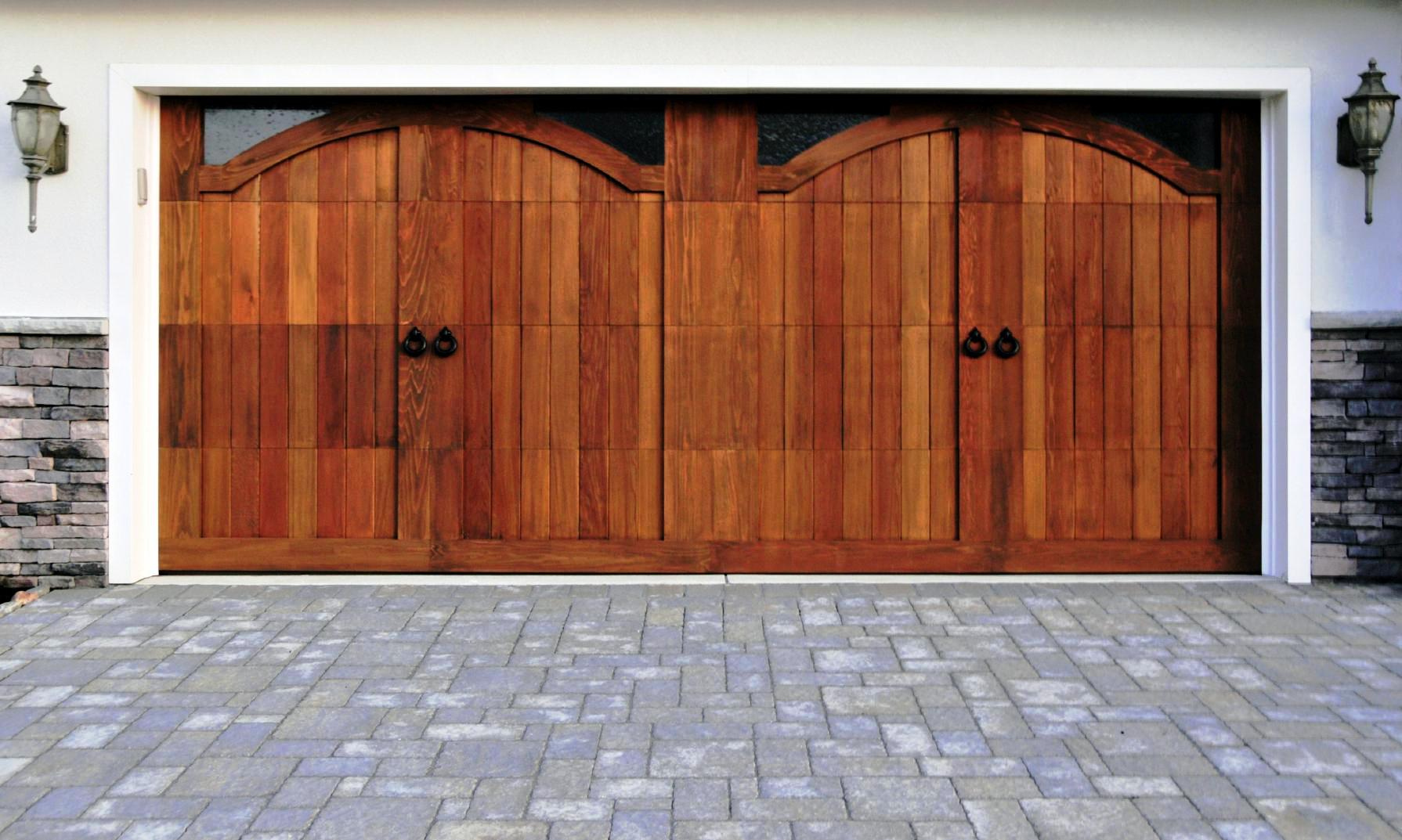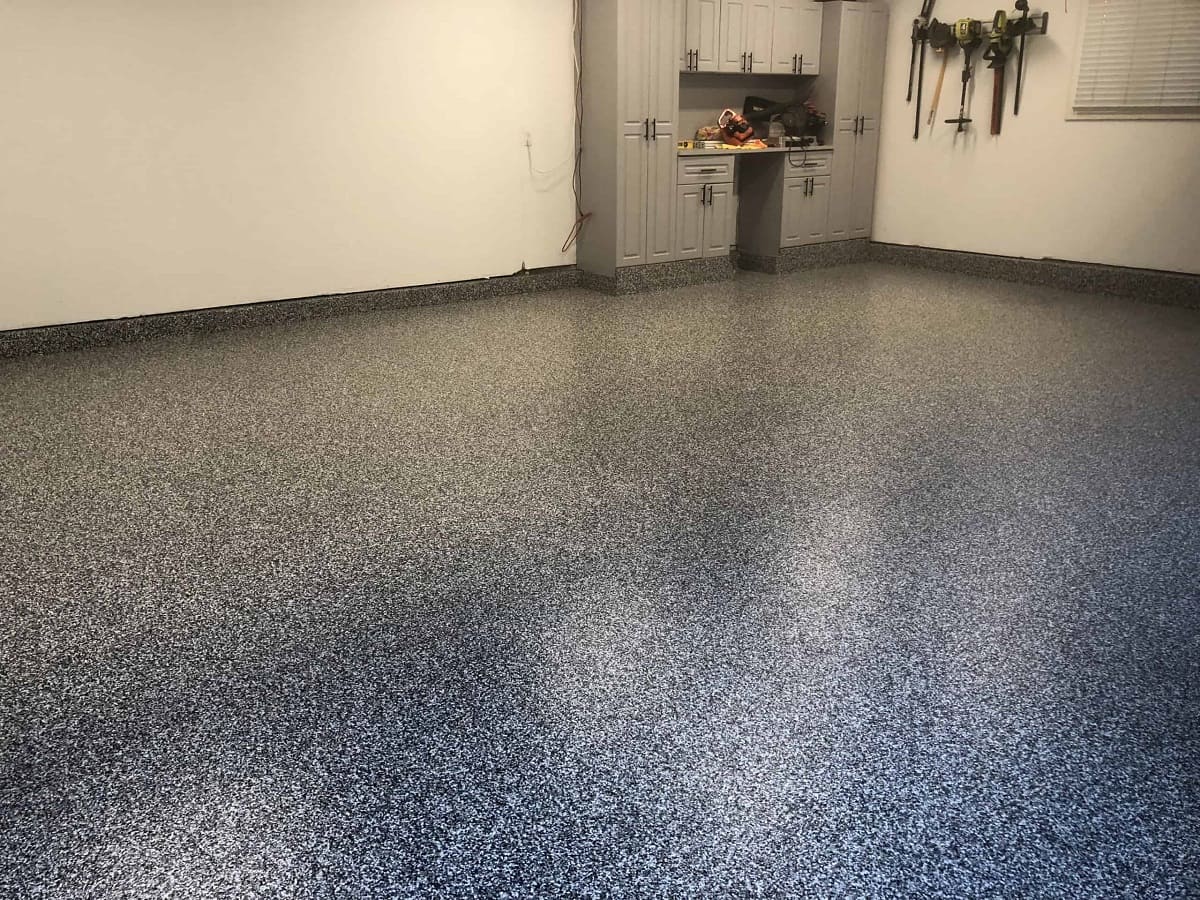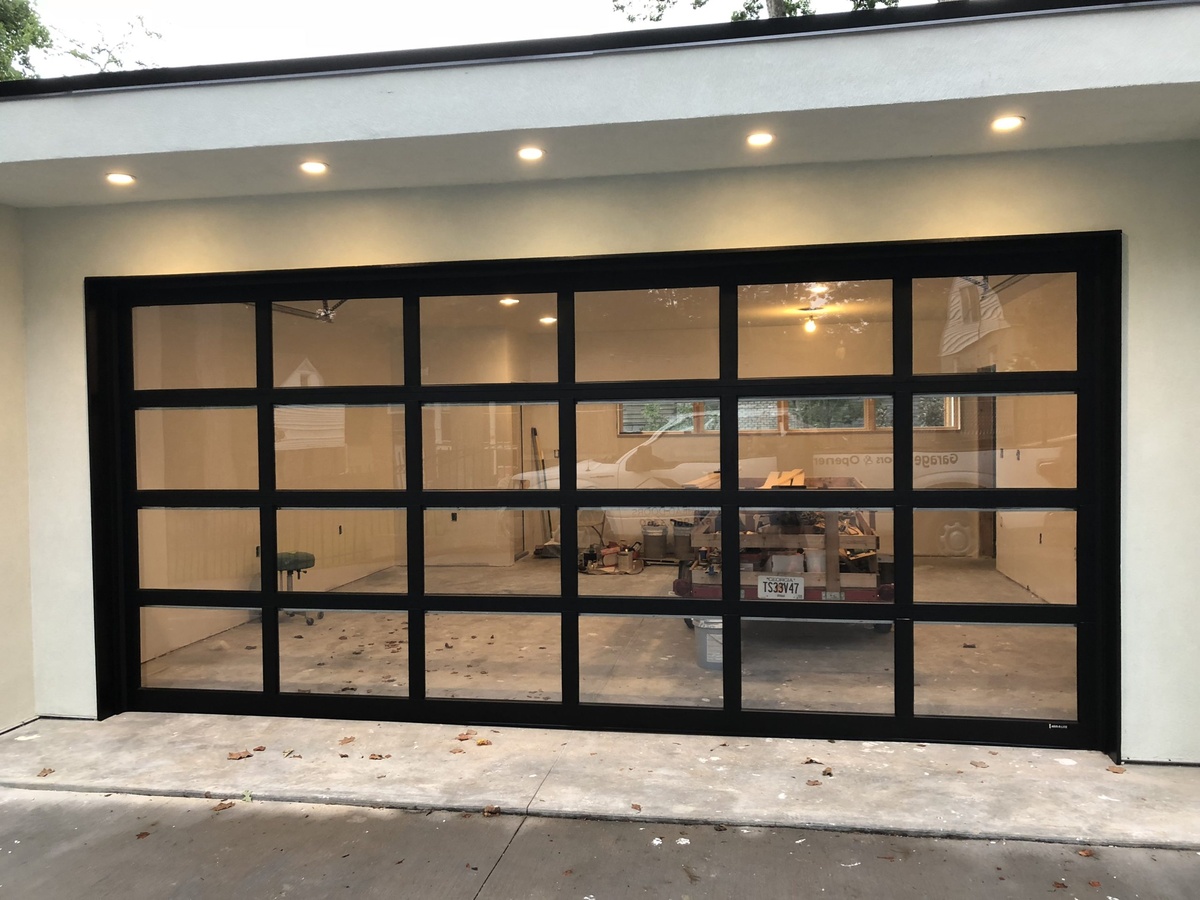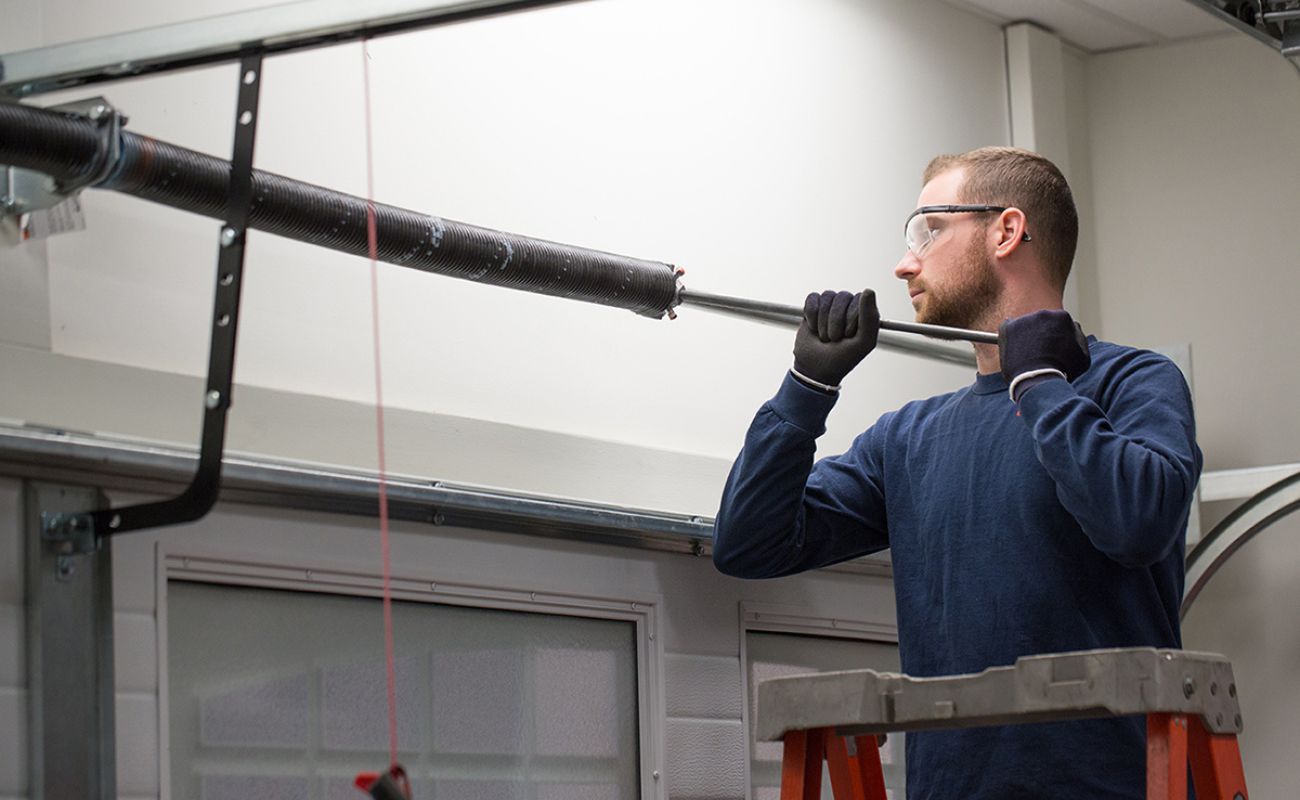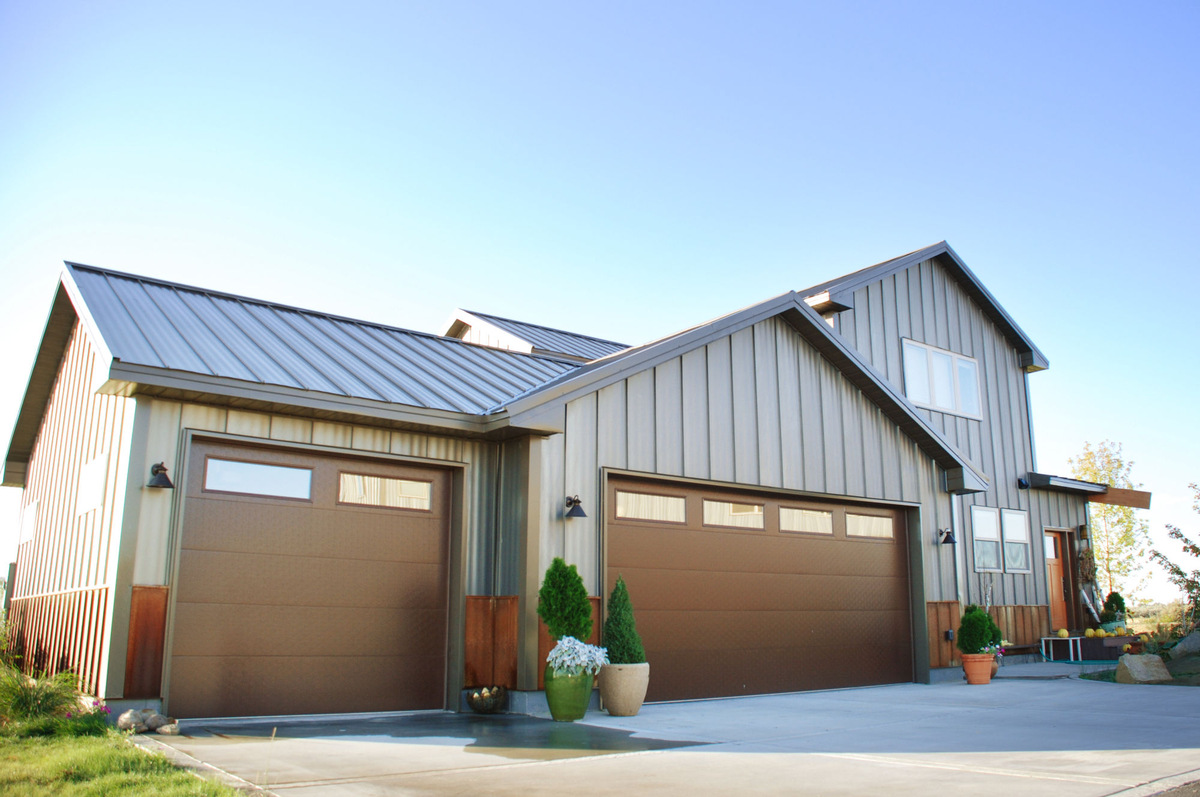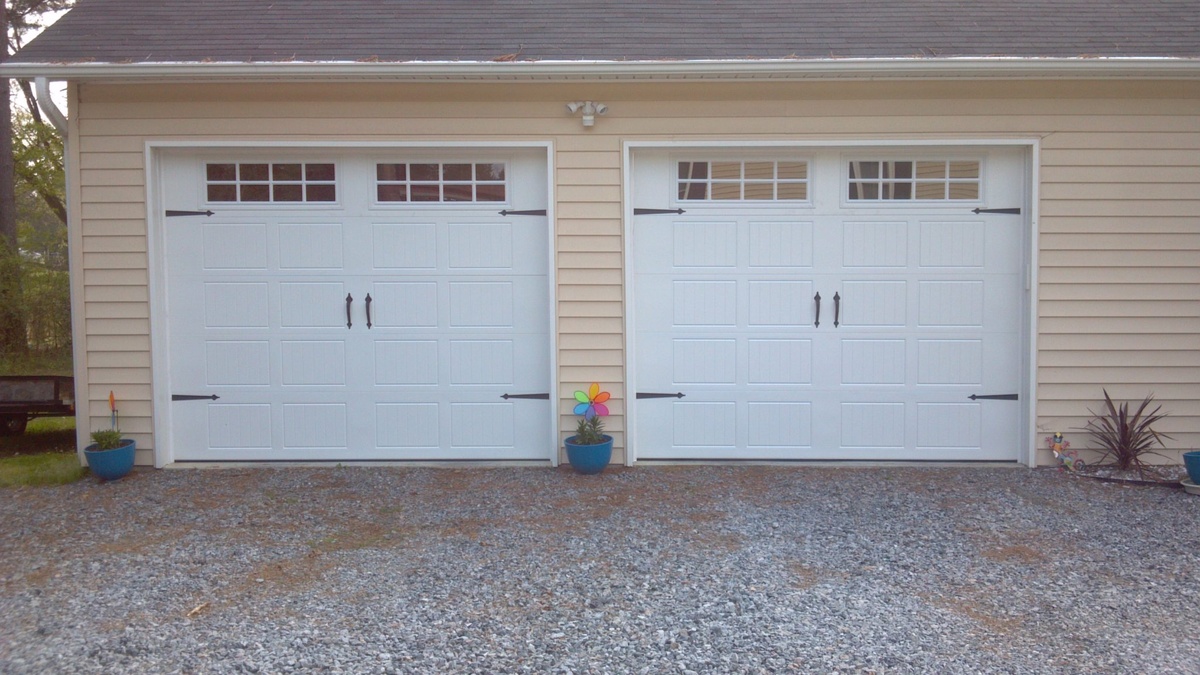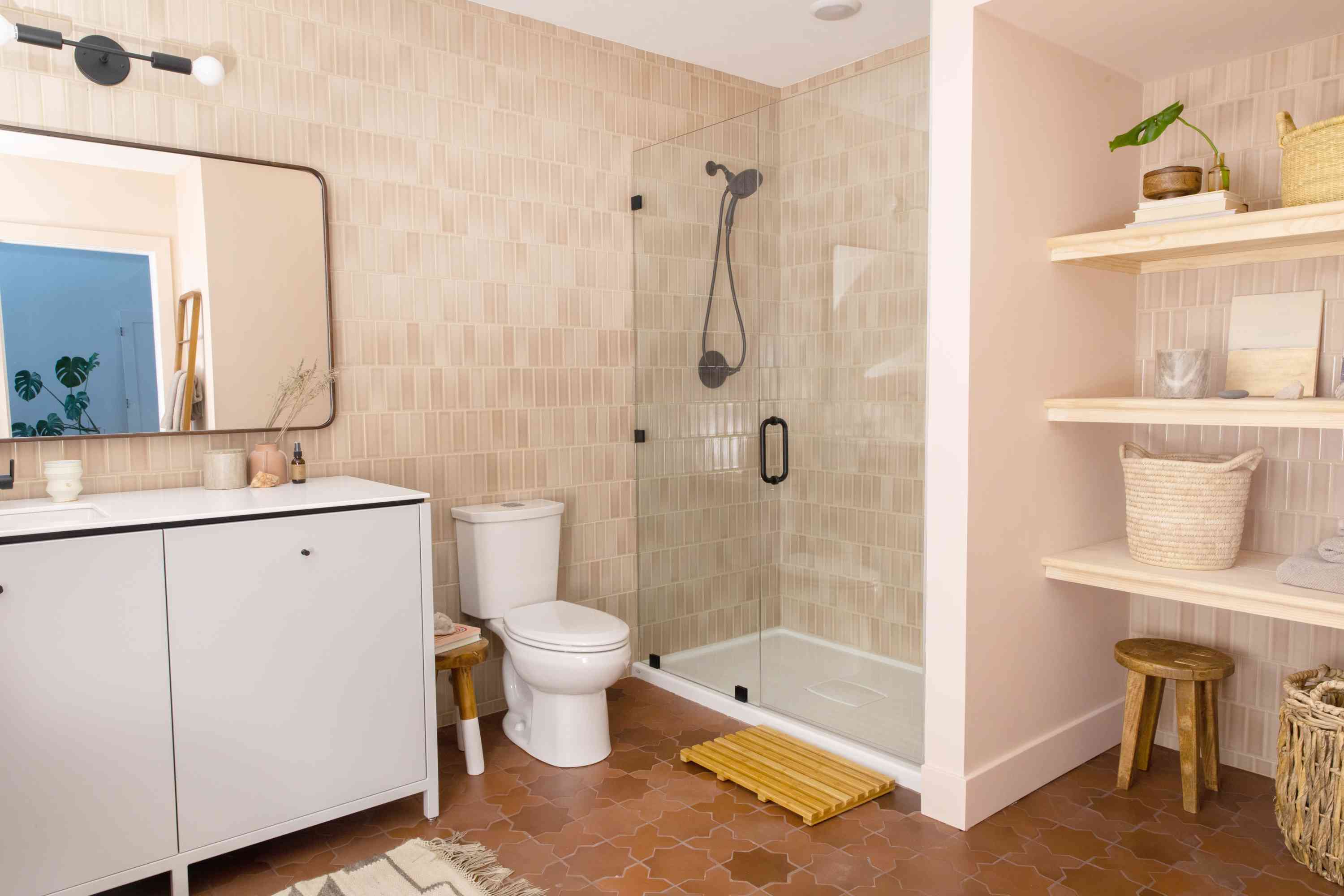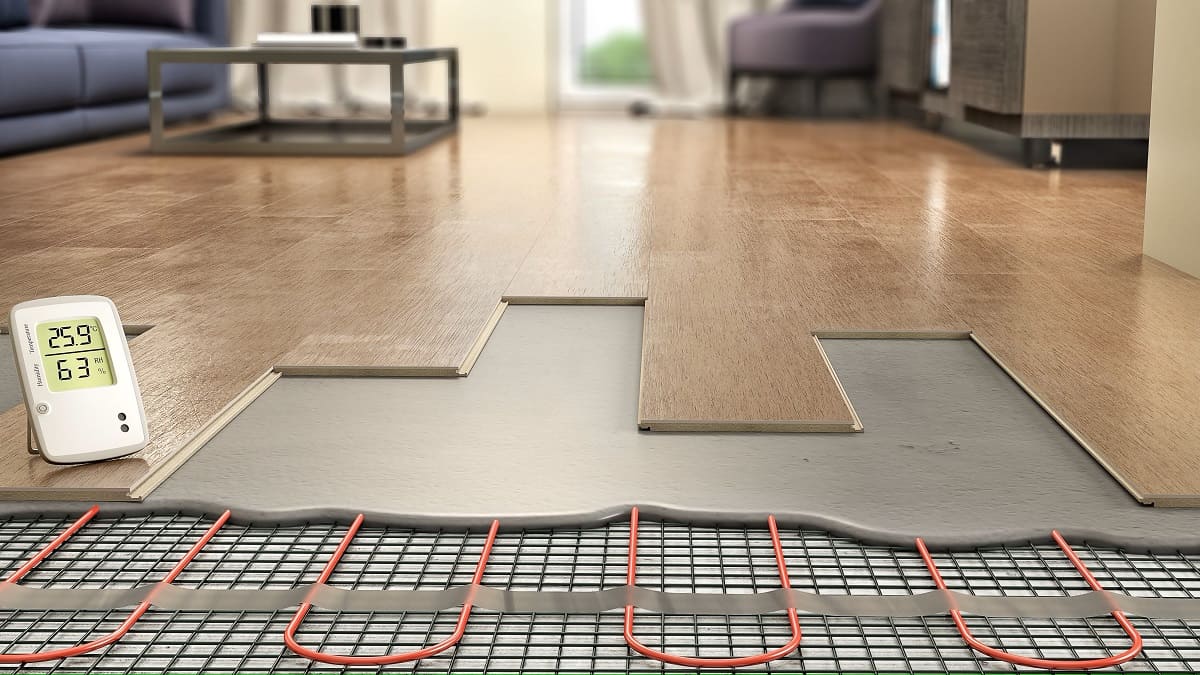Home>Home Maintenance>How Much Does Garage Repair Cost
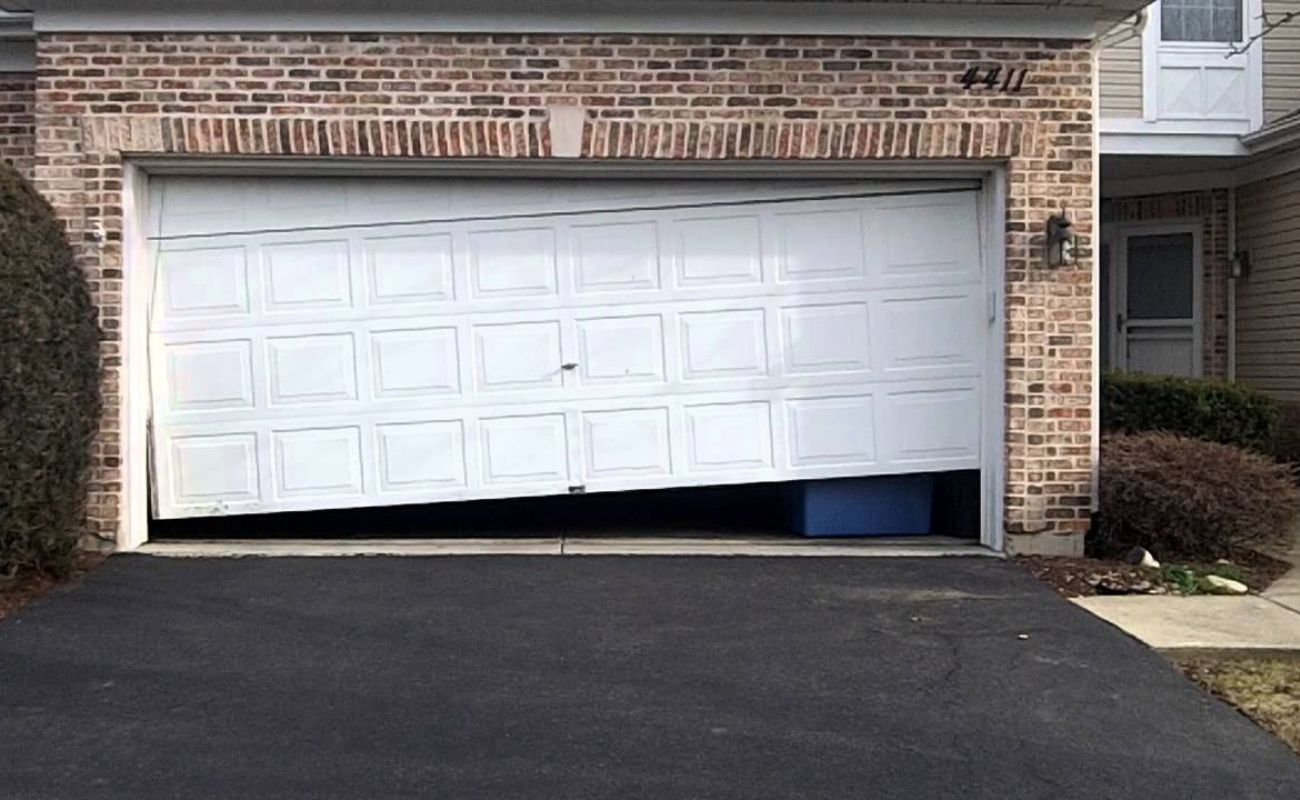

Home Maintenance
How Much Does Garage Repair Cost
Modified: October 20, 2024
Get an idea of how much garage repair costs with our comprehensive guide. Home maintenance expenses can vary, but we provide valuable insights to help you plan your budget.
(Many of the links in this article redirect to a specific reviewed product. Your purchase of these products through affiliate links helps to generate commission for Storables.com, at no extra cost. Learn more)
Introduction
Welcome to our comprehensive guide on “How Much Does Garage Repair Cost?” If you’re a homeowner or a diligent property owner, you know that maintenance and repairs are a crucial part of keeping your home in top shape. The garage, often overlooked when it comes to regular maintenance, is an essential part of your property that requires care and attention.
Garage repair costs can vary significantly depending on several factors, including the type of repair needed, the complexity of the issue, the materials required, and whether you choose to hire a professional or tackle the repairs yourself. Understanding the common garage repair issues and their associated costs can help you plan and budget accordingly.
In this article, we will explore the various factors that can affect garage repair costs, as well as the typical costs associated with different types of repairs. We will also discuss the pros and cons of hiring a professional versus doing the repairs yourself. By the end, you’ll have a better understanding of the costs involved in garage repair and be better prepared to tackle your own repair projects.
Remember, this is a general guide, and actual costs may vary depending on your location, the specific issues with your garage, and other individual factors. It’s always best to consult with a professional for an accurate assessment and estimate for your specific repair needs.
Now, let’s dive into the factors that can affect garage repair costs and explore the common issues you may encounter.
Key Takeaways:
- Garage repair costs can vary based on factors like repair type, extent of damage, materials, accessibility, and professional vs. DIY. Consulting with professionals for accurate estimates is crucial.
- Understanding common garage repair issues and costs can help homeowners plan and budget for maintenance. Whether hiring professionals or DIY, safety and accurate assessments are key.
Read more: How Much Does Chimney Inspection Cost
Factors Affecting Garage Repair Costs
When it comes to garage repairs, several factors can influence the overall cost. Understanding these factors can help you anticipate and plan for the expenses associated with repairing your garage. Here are the key factors that can affect garage repair costs:
- Type of Repair: The type of repair needed is a significant factor in determining the cost. Common garage repairs include fixing a malfunctioning garage door, repairing a damaged garage floor, addressing leaks in the garage roof, fixing damaged walls, or resolving electrical and plumbing issues.
- Extent of Damage: The severity of the damage plays a crucial role in determining the repair costs. Small cracks in the garage floor or walls may be relatively inexpensive to fix, while significant structural damage or extensive electrical and plumbing issues may require more extensive repairs and thus cost more.
- Materials: The materials needed for the repair can impact the overall cost. For example, garage doors can be made from various materials such as wood, steel, or fiberglass, each with its own price range. Similarly, the type of flooring or roofing material required for repairs can vary in cost.
- Accessibility: The accessibility of the repair area can also affect the cost. If the repair requires extensive dismantling or if the area is hard to reach, it may increase the labor and time required, thereby impacting the overall cost.
- Professional vs. DIY: Whether you choose to hire a professional or attempt the repair yourself can significantly influence the cost. While doing it yourself can save money on labor costs, it’s important to consider your skills, experience, and the potential risks involved. Complex repairs or those requiring specialized knowledge are best left to professionals.
It’s important to note that these are general factors and may vary depending on your specific repair needs and circumstances. Consulting with a professional in the field can provide you with a more accurate assessment of the costs involved in your particular garage repair project.
Now that we’ve discussed the factors that can affect garage repair costs, let’s dive into the common garage repair issues and their associated costs.
Common Garage Repair Issues
Your garage is subject to wear and tear over time, just like any other part of your home. Several common issues can arise in garages that require repair. Let’s explore some of these common garage repair issues:
- Malfunctioning Garage Door: Garage door issues can range from simple repairs, such as replacing broken springs or faulty cables, to more complex problems like motor or sensor failures. The cost of repairing a garage door can vary depending on the specific issue and the type of garage door you have.
- Damaged Garage Floor: Cracks, uneven surfaces, or damage to the garage floor can occur due to factors like heavy vehicle traffic, moisture, or shifting of the foundation. Repairing garage floor issues may involve filling cracks, resurfacing, or even replacing the entire floor, depending on the extent of the damage.
- Leaking Garage Roof: Water leaks in the garage roof can lead to damage, including mold growth and structural issues. Repairing a leaking garage roof may involve patching or replacing damaged sections, reinforcing the roof structure, or installing a new roof.
- Damaged Garage Walls: Cracks, holes, or damage to the garage walls may occur due to moisture, foundation issues, or accidents. Repairing damaged garage walls may involve patching or replacing sections, reinforcing the structure, or addressing underlying causes like moisture intrusion.
- Electrical Issues: Electrical problems in the garage can range from faulty wiring to non-functional outlets or lighting. Repairing electrical issues in the garage may involve troubleshooting, rewiring, or replacing components to ensure safety and functionality.
- Plumbing Problems: If your garage has plumbing systems, issues like leaks, clogged drains, or malfunctioning fixtures may arise. Repairing garage plumbing problems may involve fixing leaks, unclogging drains, or replacing faulty fixtures.
- Insulation Problems: Inadequate insulation in the garage can lead to temperature fluctuations and energy loss. Repairing insulation issues may involve adding or replacing insulation materials to improve energy efficiency and comfort.
Keep in mind that the costs associated with these common garage repair issues can vary based on factors such as the severity of the problem, the materials needed for repairs, and the complexity of the repair process. Contacting a professional for an assessment can help you get a more accurate estimate for your specific repair needs.
Now that we’ve explored the common garage repair issues, let’s delve into the costs associated with different types of garage repairs.
Costs of Garage Door Repairs
Garage door repairs are one of the most common issues homeowners face when it comes to their garages. The cost of repairing a garage door can vary depending on the specific problem and the type of garage door you have. Here are some common garage door repairs and their associated costs:
- Broken Springs: Garage door springs are crucial for smoothly opening and closing the door. The cost of replacing broken springs can range from $150 to $300, including both parts and labor.
- Malfunctioning Opener: If your garage door opener is not functioning correctly, it may require repair or replacement. The cost of repairing a garage door opener can range from $100 to $400, depending on the extent of the issue and whether it can be resolved with minor repairs or requires a complete replacement.
- Worn Rollers and Hinges: Over time, the rollers and hinges of a garage door can wear out and cause the door to malfunction. Replacing worn rollers and hinges typically costs between $100 and $200, depending on the number of components that need to be replaced.
- Damaged Panels: If your garage door panels are cracked or dented, replacing them may be necessary. The cost of replacing damaged garage door panels can range from $200 to $500 per panel, depending on the material and size of the panel.
- Sensor Issues: Garage door sensors are essential for safety, preventing the door from closing when there is an obstruction. Repairing or replacing faulty sensors can cost between $100 and $150.
- Track Alignment: If the garage door tracks are misaligned, it can cause the door to operate unevenly or get stuck. The cost of realigning garage door tracks typically ranges from $100 to $150.
The above mentioned costs are just estimates and can vary based on several factors, including the location, the complexity of the repair, and the type and quality of the replacement parts. It’s always recommended to consult with a professional garage door repair service for an accurate assessment and quote.
Garage door repairs can be complex, and attempting to fix them yourself without the necessary skills and knowledge can lead to further damage or safety hazards. Hiring a professional garage door repair service ensures that your door is repaired correctly and safely, saving you time and potential costly mistakes.
Now that we’ve discussed the costs associated with garage door repairs, let’s move on to the costs of repairing the garage floor.
Costs of Garage Floor Repairs
The garage floor is subjected to heavy use and can experience wear and tear over time. Cracks, uneven surfaces, or other forms of damage may require repairs. The cost of garage floor repairs can vary depending on the extent of the damage and the type of repair needed. Here are some common garage floor repairs and their associated costs:
- Crack Filling: Small cracks in the garage floor can often be repaired by filling them with epoxy or crack filler. The cost of crack filling typically ranges from $1 to $3 per linear foot of crack, depending on the size and depth of the cracks.
- Resurfacing: If your garage floor has multiple cracks, stains, or an uneven surface, resurfacing may be necessary. The cost of resurfacing a garage floor can vary widely depending on the size of the garage and the complexity of the job. On average, you can expect to pay between $3 to $5 per square foot for professional resurfacing.
- Concrete Replacement: In more severe cases where the garage floor is extensively damaged or deteriorated, concrete replacement may be the best solution. The cost of concrete replacement typically ranges from $6 to $10 per square foot, including labor and materials.
- Sealing and Coating: Applying a protective sealant or coating to the garage floor can help prevent future damage and enhance its appearance. The cost of sealing and coating the garage floor can range from $1.50 to $5 per square foot, depending on the type of sealant or coating chosen.
It’s important to note that these cost estimates are averages and can vary depending on factors such as the location, the size of the garage, the level of damage, and the specific materials used for repair. Additionally, complex repairs or those requiring extensive preparation work can also impact the overall cost.
If you’re unsure about the extent of your garage floor damage or the appropriate repair method, consulting with a professional contractor specializing in garage floor repairs is recommended. They can assess the damage, provide a more accurate estimate, and ensure the repairs are done correctly and to industry standards.
Now that we’ve covered garage floor repairs, let’s move on to discussing the costs associated with repairing the garage roof.
Read more: How Much Does It Cost To Replace A Chimney
Costs of Garage Roof Repairs
The garage roof plays a vital role in protecting your garage from the elements. Over time, roofs can develop issues such as leaks, damage, or deterioration that require repairs. The cost of garage roof repairs can vary depending on the extent of the damage and the type of repair needed. Here are some common garage roof repairs and their associated costs:
- Patching or Repairing Leaks: If your garage roof has minor leaks, they can often be patched or repaired. The cost of patching a leak can range from $200 to $500, depending on the size and location of the leak.
- Replacing Shingles or Tiles: Damaged or missing shingles or tiles can compromise the integrity of your garage roof. The cost of replacing shingles or tiles can vary depending on the material, with asphalt shingles costing around $1.50 to $3 per square foot, while clay or concrete tiles can range from $5 to $15 per square foot.
- Repairing Sagging or Rotting Roof Structure: If the supporting structure of your garage roof is sagging or rotting, it will require repair or reinforcement. The cost of repairing a sagging or rotting roof structure can range from $500 to $3,000, depending on the extent of the damage and the necessary repairs.
- Sealing and Coating: Applying a protective sealant or coating to the garage roof can help extend its lifespan and prevent future damage. The cost of sealing and coating a garage roof can range from $0.75 to $1.50 per square foot, depending on the type of sealant or coating used.
- Complete Roof Replacement: In cases where the garage roof is extensively damaged or nearing the end of its lifespan, a complete roof replacement may be necessary. The cost of replacing a garage roof can vary widely depending on factors such as the size of the roof, the material chosen, and the complexity of the installation. On average, a complete roof replacement can cost between $5,000 and $10,000.
It’s important to note that these cost estimates are averages and can vary depending on factors such as the location, the size and complexity of the roof, and the specific materials used for repair or replacement. Additionally, complex repairs or those requiring additional structural work can also impact the overall cost.
When it comes to garage roof repairs, it’s crucial to consult with a professional roofing contractor. They can assess the extent of the damage, provide accurate cost estimates, and ensure that the repairs are done properly to protect your garage and its contents.
Now that we’ve covered garage roof repairs, let’s move on to discussing the costs associated with repairing garage walls.
Costs of Garage Wall Repairs
The walls of your garage can suffer from various issues over time, including cracks, holes, or moisture damage. Repairing garage walls is essential not only for aesthetic reasons but also to maintain the structural integrity of the space. The cost of garage wall repairs can vary depending on the extent of the damage and the type of repair needed. Here are some common garage wall repairs and their associated costs:
- Patching Small Cracks or Holes: Small cracks or holes in the garage walls can often be patched using spackling paste or joint compound. The cost of patching small cracks or holes typically ranges from $5 to $20, depending on the size and depth of the damage.
- Repairing Structural Cracks: If your garage walls have significant structural cracks, it may require more extensive repair work. The cost of repairing structural cracks can vary depending on the severity and underlying causes and may range from $150 to $500 or more.
- Replacing Damaged Wall Sections: In cases where the damage is extensive or the walls are beyond repair, replacing damaged wall sections may be necessary. The cost of replacing garage wall sections depends on factors such as the size of the area to be replaced, labor costs, and the materials used. On average, you can expect to pay between $500 and $1,500 or more for wall replacement.
- Addressing Moisture or Water Damage: Moisture or water damage in garage walls can lead to mold growth and structural issues. Repairing moisture or water damage may involve identifying and fixing the source of the problem, replacing damaged materials, and addressing any related issues. The cost of addressing moisture or water damage can vary widely depending on the extent of the damage and the necessary repairs.
- Repainting or Finishing: After repairs, you may want to repaint or refinish your garage walls to give them a fresh and clean look. The cost of repainting or finishing garage walls can vary based on factors such as the size of the area to be painted, the type of paint or finish chosen, and labor costs. Typically, you can expect to pay between $1 and $3 per square foot for professional painting or finishing.
It’s important to keep in mind that these cost estimates are general guidelines and can vary depending on factors such as the location, the extent of the damage, and the specific repairs required. Consulting with a professional contractor can provide you with a more accurate assessment and estimate for your specific garage wall repair needs.
Now that we’ve covered garage wall repairs, let’s move on to discussing the costs associated with repairing garage electrical systems.
Get multiple quotes from different garage repair companies to compare costs. Ask for a breakdown of the expenses and make sure to clarify any additional fees before agreeing to the repair.
Costs of Garage Electrical Repairs
The electrical systems in your garage are essential for powering lights, outlets, and various appliances. Over time, electrical issues can arise that require repairs or updates to ensure the safety and functionality of your garage. The cost of garage electrical repairs can vary depending on the specific problem and the complexity of the repair. Here are some common garage electrical repairs and their associated costs:
- Faulty Outlets or Switches: If your garage outlets or switches are not functioning properly, they may need to be repaired or replaced. The cost of repairing or replacing an outlet or switch can range from $75 to $150 per unit, including labor and parts.
- Lighting Fixture Issues: Problems with garage lighting fixtures, such as flickering lights or non-functioning bulbs, may require repair or replacement. The cost of repairing or replacing a lighting fixture can vary depending on factors such as the type of fixture and the complexity of the installation, with average costs ranging from $100 to $300 per fixture.
- Panel or Breaker Box Upgrades: If your garage electrical system is outdated or unable to handle the electrical load, you may need to upgrade the panel or breaker box. The cost of panel or breaker box upgrades can range from $1,000 to $3,000, including materials and labor.
- Wiring Repairs: Faulty or damaged electrical wiring can be a safety hazard and may require repairs. The cost of wiring repairs depends on factors such as the extent of the damage, the accessibility of the wiring, and the length of the wiring run. On average, you can expect to pay between $500 and $2,500 for wiring repairs in your garage.
- GFCI Outlet Installation: Ground Fault Circuit Interrupter (GFCI) outlets are crucial for maintaining electrical safety in areas prone to moisture, such as garages. The cost of GFCI outlet installation typically ranges from $125 to $200 per outlet, including labor and materials.
Please note that these cost estimates are general guidelines and can vary depending on factors such as the location, the complexity of the electrical system, and the specific repairs or upgrades needed. It’s recommended to consult with a licensed electrician for an accurate assessment and estimate for your garage electrical repair requirements.
When it comes to garage electrical repairs, safety should always be a priority. It’s essential to hire a professional electrician experienced in garage electrical systems to ensure that the repairs are done correctly and to code.
Now that we’ve covered garage electrical repairs, let’s move on to discussing the costs associated with repairing garage plumbing systems.
Costs of Garage Plumbing Repairs
The plumbing systems in your garage play a vital role in providing water supply, drainage, and potentially additional features such as sinks or utility sinks. Over time, plumbing issues can arise that require repairs or updates. The cost of garage plumbing repairs can vary depending on the specific problem and the complexity of the repair. Here are some common garage plumbing repairs and their associated costs:
- Leaking Pipes: If you have leaking pipes in your garage, they may need to be repaired or replaced. The cost of repairing or replacing leaking pipes can vary depending on factors such as the size and location of the leak, the type of pipes, and the extent of the repair. On average, you can expect to pay between $100 to $500 or more for pipe repairs.
- Clogged Drains: If your garage drains are clogged and not draining properly, they may need to be cleared. The cost of clearing clogged drains depends on factors such as the severity of the clog and the complexity of the plumbing system. On average, you can expect to pay between $100 to $300 for drain clearing services.
- Fixture Repair or Replacement: If your garage has plumbing fixtures such as sinks or utility sinks that are malfunctioning or damaged, they may need to be repaired or replaced. The cost of repairing or replacing plumbing fixtures can vary depending on the type of fixture, the extent of the repair, and the materials used. On average, you can expect to pay between $150 to $500 or more per fixture.
- Water Heater Issues: If your garage has a water heater that is not functioning properly or leaking, it may require repairs or replacement. The cost of repairing or replacing a water heater depends on factors such as the type and size of the water heater and the complexity of the installation. On average, you can expect to pay between $500 to $1,500 or more for water heater repairs or replacement.
- Water Line Repairs: If you have leaking or damaged water lines in your garage, they may need to be repaired or replaced. The cost of water line repairs depends on factors such as the length and material of the water lines, the accessibility of the pipes, and the extent of the repair. On average, you can expect to pay between $500 to $2,000 or more for water line repairs.
These cost estimates are general guidelines and can vary depending on factors such as the location, the complexity of the plumbing system, and the specific repairs needed. It is recommended to consult with a licensed plumber for an accurate assessment and estimate for your garage plumbing repair requirements.
When it comes to garage plumbing repairs, it is important to address issues promptly to prevent further damage or potential water-related hazards. Hiring a professional plumber experienced in garage plumbing systems is highly recommended to ensure that the repairs are done correctly and to code.
Now that we’ve covered garage plumbing repairs, let’s move on to discussing the costs associated with garage insulation repairs.
Read more: How Much Does It Cost To Clean A Chimney
Costs of Garage Insulation Repairs
Proper insulation in your garage is crucial for maintaining temperature control, energy efficiency, and preventing moisture buildup. Over time, insulation in the garage may deteriorate or become damaged, requiring repairs or updates. The cost of garage insulation repairs can vary depending on the extent of the damage, the type of insulation, and the size of the garage. Here are some common garage insulation repairs and their associated costs:
- Patching or Sealing Gaps: If you notice gaps or cracks in the insulation, they can often be patched or sealed to improve the effectiveness of the insulation. The cost of patching or sealing gaps typically ranges from $50 to $200, depending on the size and number of areas that need to be addressed.
- Adding Insulation: If your garage lacks sufficient insulation or the existing insulation is insufficient, adding insulation can help improve energy efficiency. The cost of adding insulation to the garage depends on factors such as the size of the garage, the type of insulation chosen, and the complexity of the installation. On average, you can expect to pay between $1 to $3 per square foot for insulation installation.
- Removing and Reinstalling Insulation: In cases where the insulation is extensively damaged or contaminated, removing and reinstalling insulation may be necessary. The cost of removing and reinstalling insulation varies depending on factors such as the size of the garage, the type of insulation, and the labor involved. On average, you can expect to pay between $1,500 to $3,000 or more for insulation removal and reinstallation.
- Vapor Barrier Repairs: Vapor barriers are essential for preventing moisture buildup. If your garage insulation’s vapor barrier is damaged or deteriorated, it will need to be repaired or replaced. The cost of vapor barrier repairs depends on factors like the size of the area requiring repair and the type of vapor barrier used. On average, you can expect to pay between $200 and $500 for vapor barrier repairs.
- Insulation Removal and Replacement: In cases where the insulation is severely damaged, contaminated, or ineffective, complete insulation removal and replacement may be necessary. The cost of insulation removal and replacement varies significantly depending on factors such as the size of the garage, the type of insulation, and the labor costs involved. On average, you can expect to pay between $1,500 and $5,000 or more for insulation removal and replacement.
It’s important to note that the actual costs may vary based on factors such as the location, the scope of the repairs, and the specific insulation materials used. It’s recommended to consult with a professional insulation contractor for an accurate assessment and estimate for your garage insulation repair project.
Repairing and maintaining proper insulation in your garage can help improve energy efficiency, increase comfort, and protect any items stored in your garage.
Now that we’ve covered garage insulation repairs, let’s move on to discussing the pros and cons of hiring a professional versus DIY garage repairs.
Hiring a Professional vs DIY Garage Repairs
When it comes to garage repairs, you may be faced with the decision of hiring a professional or tackling the repairs yourself. Both options have their advantages and considerations. Here are some factors to consider when deciding between hiring a professional or opting for DIY garage repairs:
Hiring a Professional:
Expertise and Knowledge: Professional garage repair services have the experience and expertise to assess and diagnose the issues accurately. They are trained in the specific techniques and methods required for various repairs, ensuring that the work is done correctly and efficiently.
Quality of Work: By hiring a professional, you can expect a higher level of quality in the repairs. Professionals have access to the necessary tools and equipment and are familiar with industry best practices. They can provide long-lasting and reliable results, giving you peace of mind.
Time and Convenience: Garage repairs can be time-consuming, especially if you’re unfamiliar with the process. By hiring a professional, you can save valuable time and effort by entrusting the repairs to someone who can complete them more efficiently. Additionally, professionals can often work within your schedule, ensuring convenient and timely repairs.
Safety: Certain garage repairs, such as electrical or structural repairs, can be hazardous if not handled properly. Professionals are trained in safety protocols and have the expertise to address these repairs safely. They can also identify potential safety risks and take appropriate measures to mitigate them.
DIY Garage Repairs:
Cost Savings: One of the primary advantages of DIY garage repairs is the potential for cost savings. By doing the repairs yourself, you can eliminate labor costs associated with hiring a professional. However, it’s important to consider your own skills and abilities to ensure that the repairs are done correctly without compromising safety or leading to further damage.
Learning Opportunity: DIY repairs can provide valuable learning experiences and allow you to acquire new skills. It can be satisfying and empowering to successfully complete a repair project on your own, boosting your confidence and knowledge for future projects.
Flexibility and Control: When you choose to handle the repairs yourself, you have full control over the process. You have the flexibility to work at your own pace, make adjustments as needed, and personalize the repairs to your preferences.
Simple Repairs: For minor repairs or basic maintenance tasks, such as patching small cracks or replacing a light fixture, DIY may be a viable option. These tasks often require minimal specialized knowledge or tools and can be relatively straightforward to complete on your own.
Ultimately, the decision between hiring a professional or DIY garage repairs depends on your comfort level, the complexity of the repairs, and your available time and resources. It’s essential to be realistic about your abilities and consider the potential risks and consequences of DIY repairs. If in doubt, consulting with a professional for an assessment or guidance can provide valuable insights into the best course of action for your particular repair needs.
Now that we have discussed the pros and cons of hiring a professional versus DIY garage repairs, let’s wrap up our comprehensive guide on garage repair costs.
Read more: How Much Does It Cost To Tuckpoint A Chimney
Conclusion
Maintaining and repairing your garage is an important aspect of maintaining your home’s overall value and functionality. Understanding the factors that can affect garage repair costs and knowing the common issues that may arise can help you plan and budget accordingly. From garage door repairs to flooring, roofing, walls, electrical systems, plumbing, and insulation, each area of your garage may require attention at some point.
When it comes to garage repairs, hiring a professional or opting for DIY repairs both have their advantages. While professionals offer expertise, quality work, and convenience, DIY repairs can provide cost savings and valuable learning experiences. Ultimately, the decision depends on the complexity of the repairs, your skill level, and the time and resources you have available.
Keep in mind that the costs associated with garage repairs can vary based on factors such as the type of repair needed, the extent of the damage, location, and materials used. It’s always recommended to consult with professionals for accurate assessments and estimates for your specific repair needs.
By taking proactive measures to address garage repair issues promptly and investing in proper maintenance, you can ensure the longevity and functionality of your garage. Regular inspections, routine maintenance, and addressing minor issues before they escalate can save you time, money, and potential headaches in the long run.
Whether you opt for professional assistance or choose to tackle the repairs yourself, maintaining your garage should be a priority. By doing so, you can enjoy a well-functioning and aesthetically pleasing space that adds value to your home.
We hope this comprehensive guide on “How Much Does Garage Repair Cost?” has provided you with valuable insights and assistance in understanding the costs associated with various garage repairs. Remember to prioritize safety, consult with professionals when needed, and address repairs promptly to maintain the condition of your garage.
Frequently Asked Questions about How Much Does Garage Repair Cost
Was this page helpful?
At Storables.com, we guarantee accurate and reliable information. Our content, validated by Expert Board Contributors, is crafted following stringent Editorial Policies. We're committed to providing you with well-researched, expert-backed insights for all your informational needs.
